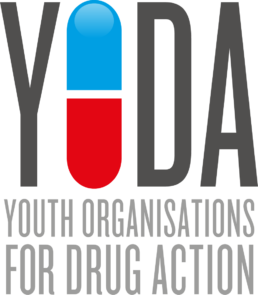YODA member Ciaran Weir is our guest blogger, here to give you a run down of the most recent YODA training session!
Last month we seen members from 12 countries come together in Belgrade, Serbia for a week long training session on the social exclusion, human rights and drug treatment for young people who use drugs. In true YODA style we kept to tradition by staying on a riverboat hotel on the Danube.
Our training workshop brought together new and familiar faces for training on the issues youth face across Europe. Throughout the week we had endless conversations sharing our ideas, knowledge and experiences.
The training was delivered during the day with a short break for lunch and coffee in the brilliant Serbian weather. During the evenings we continued our conversations while relaxing, exploring and enjoying the fine food and entertainment Belgrade had to offer.
As with every YODA workshop there is massive cultural exchange, a blur of languages and ideas which creates a unique learning experience well outside the subject content. I picked up some Serbian, practised some basic Polish and learned quite a bit about the politics and the shared history which shapes the Balkan region.
How it happened
To set up the week, our first day opened with presentations from each organisation, here we heard about each other’s work and the challenges we face. We also ran an icebreaker to help us get to know each other.
At the beginning of the week were very happy to be joined by two special guests, Natalia from the Council of Europe’s European Youth Fund (EYF) and a representative from the Serbian Ministry for Youth and Sport. Natalia spoke about what the fund does, how to apply, and how they can support youth projects.
We had quite a few sessions over the week which focused on themes of social exclusion, drug treatment and the human rights of young people who use drugs. During the week our sessions took form of group discussions, debates, presentations and case studies, based on real world examples.
Treatment and Intervention
We discussed access to different types of psychosocial services for young people who use drugs and explored the difference in approaches for treatment examples and their impact on those who use them in our respective countries. A notable example was the CANDIS Program which uses motivational interviewing and CBT therapies to reduce dependency on cannabis.
After discussing treatment types, we watched a short documentary about an underground community in Romania before splitting into groups and developing treatment and intervention plans for the vulnerable unground community- you can check out the video here.
Knowing about the different types of treatment and interventions will be useful for our work in our home countries. Some participants were experienced in delivering services to young people who use drugs, whilst others worked in more advocacy focused organisations. These different experiences produced some interesting discussions, with what we learned being brought back to our home countries, this will help improve our capacity to deliver our work on the ground.
Human Rights
We worked in groups with sample drug possession cases to determine what the likely outcome would be in each country. The difference in criminal penalties for drug offences were complex, for example some countries had different classifications of drugs, i.e different penalties based on perceived harm, whilst others had no distinction based on harm. There was also difference in the protections and rights on arrest in each country; whilst protections existed in every country these weren’t always applied fairly.
We also had a presentation on the European Convention on Human Rights and worked in groups to review case studies and discuss the extent of human rights violations evident in these case studies from prisons and custodial settings.
This session was particularly striking because it was an area that not many participants knew a lot about. We worked together to find and compare information about the treatment of those who are incarcerated for drug offences in our home countries. Something I learned in this session was that most countries promise reasonable access to healthcare and drug treatment for people who are incarcerated, however in practice these were not always as accessible as they should be, for fear of stigma, shame and further criminalisation. We concluded that there needs to be more adequate protections for the human rights of young people incarcerated throughout Europe.
Outcomes
At the end of each day we agreed a set of recommendations (based on each topic) that would better protect young people during drug treatment, intervention and when interacting with the justice system. These recommendations are based on our local perspectives, lived experiences and the work of our respective organisations.
Our recommendations are set to be finalised and submitted to the UN Economic and Social Council, European Union and the Council of Europe.
This meeting was supported by European Youth Foundation and Open Society Foundations Global Drug Policy Program.
Ciarán Weir is the UK board member for YODA. He also leads Students for Sensible Drug Policy U.K and has been working in drug policy for four years.









